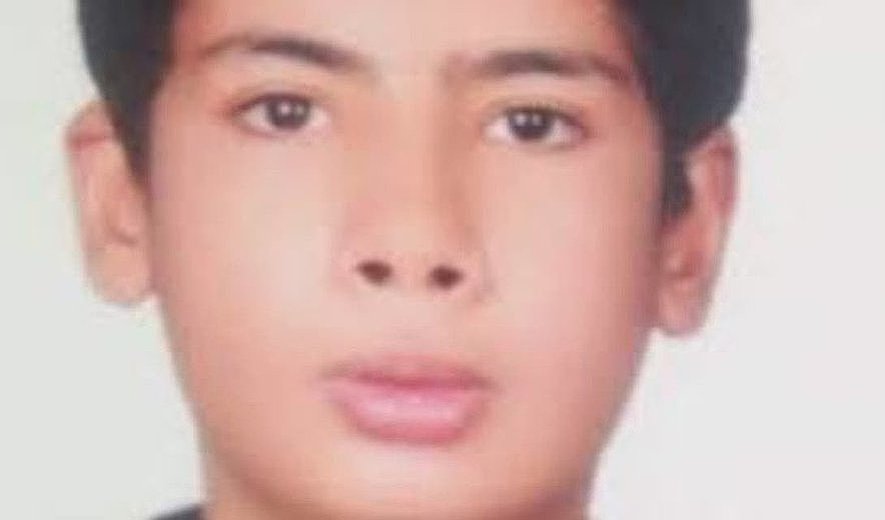Juvenile Offender Hossein Shahbazi Transferred for Execution in Shiraz Central Prison

Iran Human Rights (IHRNGO); December 25, 2021: Juvenile offender Hossein Shahbazi who was sentenced to qisas (retribution-in-kind) for murder, has been transferred to solitary confinement in preparation for his execution in Shiraz Central Prison. He is accused of committing the murder in a mass fight when he was 17 years old.
According to information obtained by Iran Human Rights, death row juvenile offender Hossein Shahbazi has been transferred to solitary confinement in preparation for his execution in Shiraz Central Prison and is scheduled to be executed within hours.
Hossein was last transferred for execution in June but his execution was postponed at the time for unknown reasons.
Hossein Shahbazi was 17 years old at the time of allegedly committing the murder during a mass fight in 2018.
A source previously told Iran Human Rights that Hossein was tortured to make self-incriminating confessions during the interrogation phase. “Due to the family’s financial problems, they couldn’t afford to get Hossein a lawyer,” they said. Hossein had also been sent to the legal medical examiner to assess his mental maturity days after arrest and was found to have reach maturity and fully developed.
According to Article 91 of the new Islamic Penal Code, passed in 2013, “In the cases of offences punishable by hadd or qisas, if mature people under eighteen years do not realise the nature of the crime committed or its prohibition, or if there is uncertainty about their full mental development, according to their age, they shall be sentenced to the punishments prescribed in this chapter.” The note to the Article gives judges the power to determine the defendant's mental capacity: “The court may ask the opinion of forensic medicine or resort to any other method that it sees appropriate in order to establish the full mental development.”
Iran is one of the few countries in the world that still carries out the death penalty for juvenile offenders. The International Covenant on Civil and Political Rights which the Islamic Republic is a signatory to, prohibits the issuance and implementation of the death penalty for crimes committed by an individual below 18 years of age.
The Convention on the Rights of the Child, which the Islamic Republic is also a signatory to, explicitly states that “Neither capital punishment nor life imprisonment without possibility of release shall be imposed for offences committed by persons below eighteen years of age.” However, the new Islamic Penal Code adopted in 2013 explicitly defines the “age of criminal responsibility” for children as the age of maturity under Sharia law, meaning that girls over 9 lunar years of age and boys over 15 lunar years of age are eligible for execution if convicted of “crimes against God” (such as apostasy) or “retribution crimes”(such as murder).
According to data collected by IHR and international human rights organisations, the Islamic Republic is responsible for more than 70% of all executions of juvenile offenders in the last 30 years. IHR’s statistics also show that at least 63 juvenile offenders have been executed in Iran over the past 10 years, with at least six being executed in 2018 and four in 2019.
Given the security state and repression of civil society activists and the limited contact with prisoners, it is likely that the number of juvenile executions is much higher than recorded.

